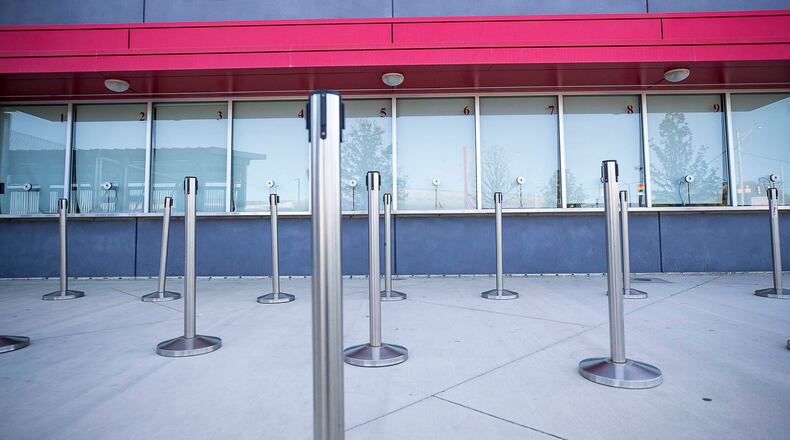If you watch CNBC, a theme emerges: In a post-pandemic world, business will be forever changed. The list of companies filing for bankruptcy includes Neiman Marcus, JC Penney, Gold’s Gym, J. Crew, Pier 1 Imports and Hertz. Airlines have sought a federal bailout. Many if not most restaurants still don’t offer dine-in service. Forty million Americans have filed for unemployment over the past 10 weeks.
Some of these jobs and companies will be back. Some, it is feared, will not. The operating theory is that next year’s economy will be leaner than last year’s. As we’re constantly reminded, sports are businesses, even sports that are technically played by amateurs. Some MLB clubs have furloughed front-office employees. ESPN reported that “hundreds of minor league baseball players were cut Thursday and hundreds more are expected to lose their jobs.” (As mentioned recently in this space, there’s little hope that minor-league games will be played in 2020.)
When/if sports return – with every passing day, it seems more of a “when” – pro leagues will work on streamlined schedules. The NHL figures to move straight to its Stanley Cup doings. The NBA is considering a few for-show regular-season dates in its Disney bubble, but it’s more likely the league will skip to a playoff, perhaps an expanded one. Baseball is hoping for either an 82- or a 100-game regular season. (Accounts vary.) In their emergency planning, these entities are essentially telling us what we’ve suspected for some time: Regular seasons are both overlong and overrated.
Baseball starts playing games that count in March. The games that REALLY count don’t roll around until October. That’s the month when the NBA begins its regular season, which extends through April. We ask: Are six-month seasons that do nothing except winnow a few clubs from the championship tournament utter necessities? Uh, no.
Next question: Might the forced example of skipping some of the dull stuff – really, how many great NBA regular-season games can you recall? – to get to the good part induce these leagues to shorten regular seasons in the years ahead? Probably not, because let’s return to where we began today’s little exercise.
Sports are hemorrhaging money. The only way sports make money is through the staging and airing – especially the latter – of games. You can’t sell tickets if nobody plays. The more teams play, the more tickets/concessions/parking/apparel they can sell.
It isn’t likely that many tickets will be sold for games in 2020 because baseball/basketball/hockey will almost certainly be held behind locked doors. Even if stadiums/arenas do open, it’s apt to be in a reduced capacity for the sake of social distancing. This means teams and leagues will be mostly if not wholly reliant on broadcast money. Meaning: more hemorrhaging. The latest divide in the ancient struggle between MLB owners and players comes down to which side should lose more money. (Owners think the players should absorb more of the hit than the players, shockingly, believe they should.)
Sports money lost in 2020 is gone forever. That will affect 2021 and beyond. When you’ve made less, there’s less to spend. Even if professional leagues had any inclination to trim regular seasons – it has never been clear if any do – there’s zero chance of that happening anytime soon. Let’s say MLB said, “For the good of competition and the health of our players, we’ll cut the 2021 regular season from 162 games to 140.” To make the same amount on a $20 ticket over 81 home games, you’d have to charge $23.14 over 70.
Which brings us back to those unemployment numbers. Many among us will have less income, which means discretionary spending will be the first to suffer. When we speak of re-starting the economy, we’re not envisioning an engine zooming from zero to 60 in a month or a month of Sundays. To borrow a word from rebuilding sports franchise, this economic rebuild will be a process.
It’s unclear whether any front office in any sport will look to do business in 2021 with the same number of workers as in 2019. Since MLB was seeking to cut 42 of its 160 minor-league affiliates before the virus hit, that cutting could become a slashing. Even when stadiums are deemed safe enough to allow fans to enter, some folks will need time to convince themselves that spending hours in close proximity to thousands of other folks, many of whom will be yelling and therefore “aerosolizing” the space around them, is such a great idea. (We say again: Our world will be different until there’s a vaccine.)
COVID-19 has forced everything to contract. In the years ahead, businesses will try to stay lean while resuming something approximating normal service, which for sports means six-month seasons followed by weeks/months of playoffs. The money lost in 2020 won’t re-mint itself. There is, however, a chance the attitude of sports’ target audiences will change. We’re about to enter a time when our only connection to ballgames is through TV. This isn’t dissimilar to the fight Neiman Marcus and JC Penney and J. Crew face against Amazon Prime. When customers break the habit of entering your store, what guarantees they’ll be back?
One caveat: We’re speaking of pro sports. We aren’t speaking of college football, at least not the kind played in these parts. During the financial crash of the last decade, I asked the University of Georgia’s president if economic palpitations had brought a reduction in ticket renewals. “No,” Michael Adams said. “To our people, we’re second to the mortgage.” In other words, not discretionary at all.
About the Author
The Latest
Featured



